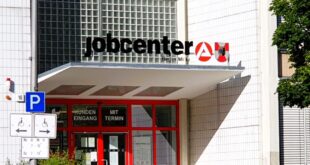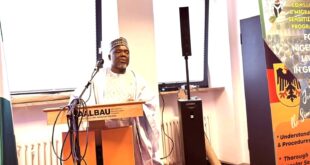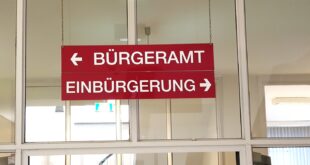A series of important legal and regulatory changes will enter into effect in November. From stricter credit rules and new tax provisions to updated citizenship regulations and infrastructure expansion, these changes shape both how you live and participate in German society. Understanding the new rules is key to navigating daily life and making the most of emerging opportunities.
![]()
Stricter checks on “Buy Now, Pay Later” (BNPL) and short-term loans
From 20 November 2025, Germany will transpose the Directive (EU) 2023/2225 on consumer credit into national law. This means even small loans (for example up to €200) — including digital “buy now, pay later” offers from providers such as payment platforms or online merchants — will require a formal credit‐worthiness check.
The following types of credit will be affected by the new rules:
-
Loans of up to €200 with a repayment period of less than three months and/or interest-free loans.
-
Purchases made on account (invoice), provided a payment service provider is involved in the process.
-
Purchases made directly on account through the retailer, if the payment period exceeds 14 days for large retailers or 50 days for small retailers.
The new directive also requires lenders to give consumers more detailed information about the terms and conditions of their credit, including interest rates and repayment arrangements.
These reforms aim to protect lower-income households from hidden debt traps associated with easily accessible short-term credit.
If you use BNPL or very short-term loans, you will now see more questions about your income or current financial commitments before you can get the credit and clearer explanations about what you are signing.
Tougher rules for overdraft credit (the “Dispokredit”)
Banks will no longer be allowed to cancel a consumer’s overdraft credit without warning: a minimum two-months’ notice must be given. If a consumer was not correctly informed of the terms or was paying excessive interest, they will be able to exercise enhanced rights, including the right of withdrawal. Banks must now more openly detail the cost and risk of overdraft credit. This is part of the same consumer-protection framework.
Tax relief via wage tax allowance — action required
Employees can apply for a wage tax allowance (Lohnsteuer-Freibetrag) for the 2025 tax year until 30 November. This allowance lowers the taxable portion of your income and therefore increases your monthly take-home pay. You can apply for next year’s allowance starting 1 November. This is relevant for people who already know they will have significant expenses (such as maintenance payments or high health/care costs).
Federal budget and infrastructure push
The German federal budget for 2025 was proclaimed on 2 October and applies retroactively from 1 January. It funds record-level investments for schools, day-care centres, railways, roads, research and digital infrastructure via a special fund for infrastructure and climate-neutrality. This signals that Germany is investing heavily in modernising its economy and public services.
Transparency in political advertising
From 10 October 2025 the EU regulation on the transparency of paid political advertisements takes effect. In Germany, the government is still preparing the implementing law. Citizens (including residents) should be able to better distinguish paid political messages from editorial or opinion content.
Digital networks will expand faster and cost less
On 12 November, the Gigabit‑Infrastructure‑Ordinance of the EU comes into force. It seeks to accelerate the roll-out of high-speed digital networks (gigabit connectivity) by simplifying approval procedures, promoting shared infrastructure and lowering costs. For those living in Germany, expect more investment and faster internet access over the coming years.
Changes to citizenship law and naturalisation rules
Germany has amended its naturalisation regime under the Staatsangehörigkeits‑Modernisierungsgesetz. As a general rule, non-Germans may apply for German citizenship after five years of legal residence, provided they meet conditions of language, self-sufficiency and integration.
Earlier fast-track naturalisation after three years for “exceptional integration” has been abolished by the current government.
For newcomers this means: you will now plan for at least five years of legal residence before naturalisation becomes an option (unless you already qualified under earlier rules). You must show at least B1 German language skills, stable means of support and a demonstrated connection to life in Germany.
Sola Jolaoso
 THE AFRICAN COURIER. Reporting Africa and its Diaspora! The African Courier is an international magazine published in Germany to report on Africa and the Diaspora African experience. The first issue of the bimonthly magazine appeared on the newsstands on 15 February 1998. The African Courier is a communication forum for European-African political, economic and cultural exchanges, and a voice for Africa in Europe.
THE AFRICAN COURIER. Reporting Africa and its Diaspora! The African Courier is an international magazine published in Germany to report on Africa and the Diaspora African experience. The first issue of the bimonthly magazine appeared on the newsstands on 15 February 1998. The African Courier is a communication forum for European-African political, economic and cultural exchanges, and a voice for Africa in Europe.


































